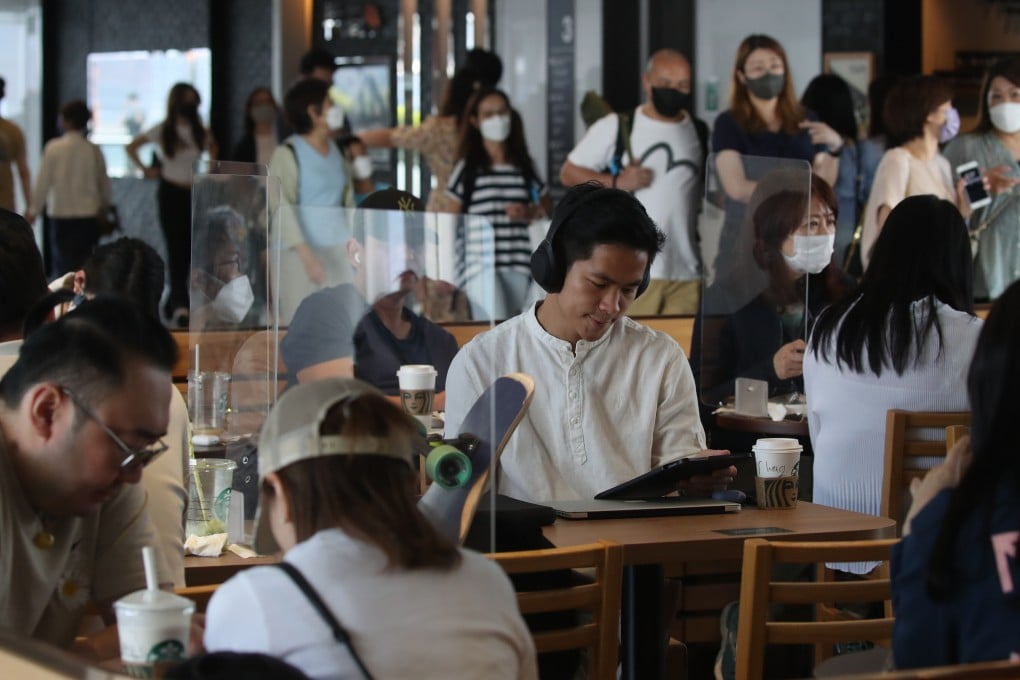As Hong Kong dining restrictions ease, restaurant owners share how they survived the fifth wave of Covid-19
- After struggling through two years of the coronavirus pandemic, especially the recent fifth wave, there is new hope for the restaurants that survived
- Restaurateurs talk about how they made it through the hard times, and look forward to the lifting of restrictions on travel to the city and a full rebound

The loudest cheer probably came from the city’s food and drink industry. From April 21, restaurants are allowed to serve dine-in meals until 10pm with up to four people per table. Entry is only allowed for those who have received at least one dose of a Covid-19 vaccine. Bars will remain closed until May.
Since January, restaurants have been restricted to selling food for takeaway or delivery after 6pm, and to seating two customers per table before 6pm. From high-end to mass market, no restaurants were spared.
The “fifth wave” of coronavirus – fuelled by the highly contagious Omicron variant – has been different.

John Nugent, owner of two bars – The Diplomat and Kyle & Bain, both in Central – says there was a general sense of a slow build-up with previous waves, “but this one felt like it came immediately and it came harder than any of the other ones”.